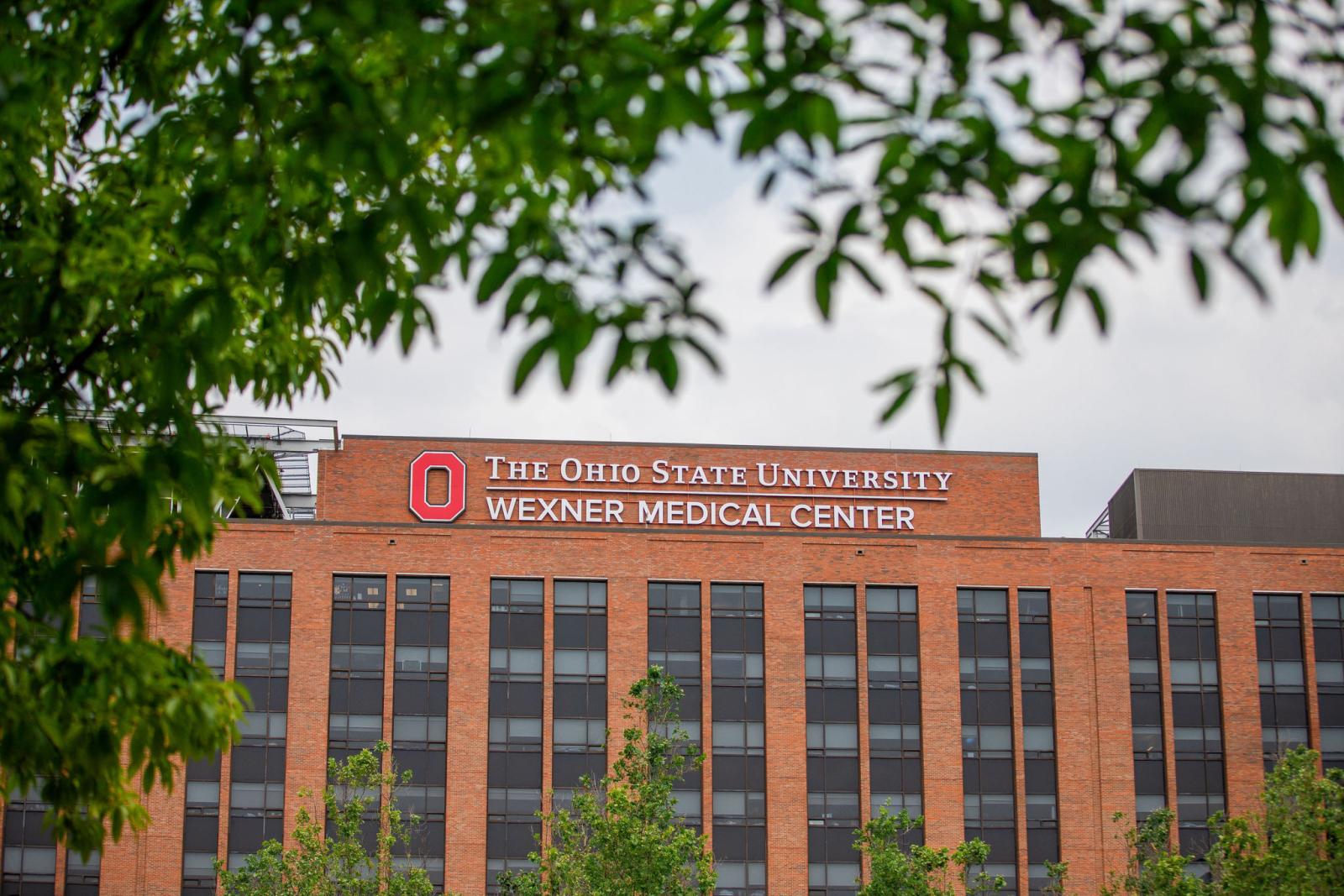PharmD students take on research design through partnership at Wexner Medical Center

For the past eight months, Doctor of Pharmacy candidates Caroline Cyranek and Mira Haddad have seen first-hand what research looks like in an in-patient setting. The third-year students are participating in the Wexner Project Match program, a collaboration that pairs Ohio State College of Pharmacy students with researchers conducting outcome-based studies at the Wexner Medical Center (WMC).
Like many of their peers, Cyranek and Haddad are still contemplating what they’d like to do after graduation. A PharmD degree allows students to explore a wide variety of pharmacy careers, from community pharmacy, ambulatory care, research-based settings and beyond. And within each of these unique careers, there’s often the extra step of selecting a specialization.
With so many options, it’s easy to understand the pair’s struggle to see into the future. However, Cyranek and Haddad have identified their strong interest in pursuing a residency. While they work to uncover what specialization they’re most passionate about, the two are using the project match as a head start in developing resident research skills.
“Running your own research project is a significant part of residency,” Cyranek said. “I’m grateful to have my foot in the door before I have to do that myself.”
Echoing Cyranek’s sentiment, Haddad noted “I have plenty of friends who are currently residents but haven’t taken part in research prior. Caroline and I have the advantage of getting oriented with how research works before we have the full responsibility of a residency position.”
Cyranek and Haddad applied for The Wexner Project Match in the spring of 2023 and began their project under the guidance of the PGY-2 Infectious Diseases residency program director Lynn Wardlow, PharmD, MBA, MS, BCIDP, AAHIVP. Besides keeping busy as a specialty practice pharmacist in the division of Infectious Diseases at WMC, Dr. Wardlow serves as a lead organizer of the project match program.
Dr. Wardlow has supported Cyranek and Haddad in tackling their project’s research topic: oral antimicrobial therapy for enterococcal and staphylococcal bloodstream infections.
To create this project’s foundation, the two spent plenty of time completing literature reviews. Not only does a research project demand knowledge of the disease state that you’re investigating, but an awareness of what research has already been done.
By tackling hours upon hours of deep dives on PubMed and Zotera, the pair pinpointed what gaps existed in research surrounding oral antibiotics for bacteremia, allowing them to set research parameters for the study.
“It’s been cool to see the throughline of the project,” Haddad said. “Dr. Wardlow has guided our ideas and checked that everything is up to the Medical Center’s standards throughout. We’re now beginning to collect data and find the answers to our research questions.”
Data collection will ask Cyranek and Haddad to apply the criteria that they’ve created to real patient records. By analyzing Dr. Wardlow’s past patients, the pair are investigating what differences may exist when bacteremia is treated with IV versus oral antibiotics. The group aims to have the data collection completed by March.
“Dr. Wardlow has been great at allowing us to spearhead the project setup,” Cyranek said. “Mira and I got to decide what the project’s primary and secondary outcomes would focus on, and also created the inclusion and exclusion criteria to be used for data collection.”
The Wexner Project Match is an introduction for many students to the world of outcomes research, so the residents, staff and faculty who organize it try to give their students a holistic research experience. Due to the level of independence granted, Cyranek and Haddad have already had a successful trial run of research development and data collection, and they’ll likely get to participate in publication next.
Haddad and Cyranek also expect to connect with the antimicrobial stewardship faculty members at the college because of their project’s relevance to antimicrobial stewardship efforts.
“We're hoping that our project will offer an opportunity for new guidelines in collaboration with the college stewardship team,” Haddad said.
And when it comes to their own takeaways, the two expressed a newfound appreciation for this field of study.
“Our research has made me much more interested in exploring antimicrobial stewardship,” Haddad said. “If I maintain my pathway to in-patient care, I can see a definite possibility in exploring this area further.”
Regardless of whether the two stick with antimicrobial stewardship as a future focus, their work as in-patient researchers has changed their perspective.
All projects used in the program are first proposed by care providers at WMC. Because of this, students can count on the fact that they’ve likely had first-hand experiences with the project focus in some way. Thanks to the hands-on curriculum of the PharmD program, pharmacy students take part in a wide variety of field experiences as early as their first year.
“It’s motivating to gain an in-depth understanding of the health outcomes that we’re trying to improve through this research,” Haddad said. “When I’m put in front of a patient in the field, I can now say ‘I know what’s happening and I’m taking steps to actively use my research to improve their outcome.’”
...
Keep an eye out for our deeper dive into the Wexner Project Match, and the value of research in a PharmD education, coming out in the spring issue of The Script.